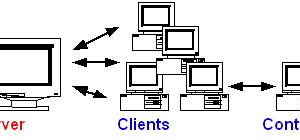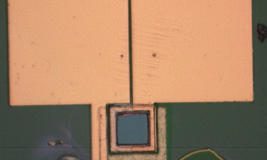>First-time Linux representation, interesting application demonstrations, a vast array of materials and excited users—all contributed to a productive Comdex show.
Braving the crowds last November, I joined over 200,000 participants at COMDEX in Las Vegas, Nevada. The largest computer trade show in the world, COMDEX offered 2,200 exhibitors plying their new computer, multimedia and/or communication products at numerous convention sites and on multiple convention floors.
As if that wasn’t enough, a PowerPC Pavilion brought together dozens of other exhibitors running their applications on PowerPC systems.
Surprisingly, given the almost overwhelming amount of information offered, there usually isn’t much about Unix at COMDEX. This year, however, I was very pleased to find Linux represented at two booths at the show. Both Yggdrasil Computing, Inc., and Morse Telecommunication had Linux in their companies’ banner.
I spent time at both of these booths to see first-hand the responses people had to Linux. The two most evident responses were easily categorized into the skeptics and the fanatics. The fanatics obviously knew about—and used—Linux. The skeptics were usually those who had barely tried Unix and didn’t like it—but even so, they had trouble believing it could be free. I saw a few skeptics walk away with information about Linux products.
Dan Quinlan, Adam Richter and Corrine Butleau staffed the Yggdrasil Computing Booth at the Sands Expo and Convention Center. They demonstrated various applications on Linux, including the Microsoft Windows Solitaire game running under WINE (the Windows Emulator for Linux). They also had the company’s latest version of The Linux Bible, The GNU Testament, available for perusal and were also giving away copies of Linux Journal.
Adam said that he thought the most important news that week was that Linux was moving to ELF (Executable Loadable Format) as the binary format. ELF is the standard format used by most PC Unix implementations, such as SVR4. Yggdrasil’s Winter, 1995, release of Plug & Play, which will be available by the time you read this, will have ELF binaries.
ACC Bookstore and Morse Telecommunication shared a booth, staffed by Michael Johnston, Robert Young and Pat Volkerding. Pat, who was interviewed in Linux Journal Issue #2, created the Slackware distribution which is being sold by many vendors. Morse Telecommunication produces Slackware Professional, a Linux package sold in many retail outlets.
ACC Bookstore and Morse had many products and publications about Linux displayed on their table and shelves, including a system demonstrating Abacus Software’s MacEmulator for Linux, which had just been announced three days before COMDEX opened.
They also had flyers from other Linux vendors such as WorkGroup Solutions. Mark Bolzern of WorkGroup Solutions was often seen at ACC and Morse’s booth as well. WorkGroup Solutions distributes Flagship, which was written by a German company, multisoft GmBH.
Flagship is a compiler that compiles XBase code; it’s similar to the MS-DOS product Clipper, but it runs on Linux. This means that you can port MS-DOS XBase applications to Linux.
Walnut Creek was also at Comdex showing their many CD-ROMs. When asked about how well Linux CD-ROMs were selling, one representative said, “Well, COMDEX is like being invaded by the Huns.” I think that meant Linux was not their best-selling product at the convention.
Andrew Grove, President and CEO of Intel Corporation, was one of the keynote speakers. Mr. Grove started with a score card of hits and misses based upon his speech and predictions at COMDEX three years ago. He gave himself hits for the rise of the PCI Local Bus, color notebooks, multimedia, messaging. He gave himself misses for his predictions on collaborative work with multimedia messaging and pen-based and wireless notebooks. (However, he wryly noted, “You can still draw a smiley face on a pen-based notebook.”)
Mr. Grove noted he had underestimated the processor performance vamp—there has been a 13-fold change in three years in terms of cost-effectiveness of processors. He also said that when he last spoke at COMDEX three years before, he had no idea how big the growth of the home personal computer would be, nor how much progress would have been made on the Information Highway.
I wonder what Andrew Grove will say in a few years about the growth of Linux on personal computers.
 Linux, Linux OS, Free Linux Operating System, Linux India Linux, Linux OS,Free Linux Operating System,Linux India supports Linux users in India, Free Software on Linux OS, Linux India helps to growth Linux OS in India
Linux, Linux OS, Free Linux Operating System, Linux India Linux, Linux OS,Free Linux Operating System,Linux India supports Linux users in India, Free Software on Linux OS, Linux India helps to growth Linux OS in India



